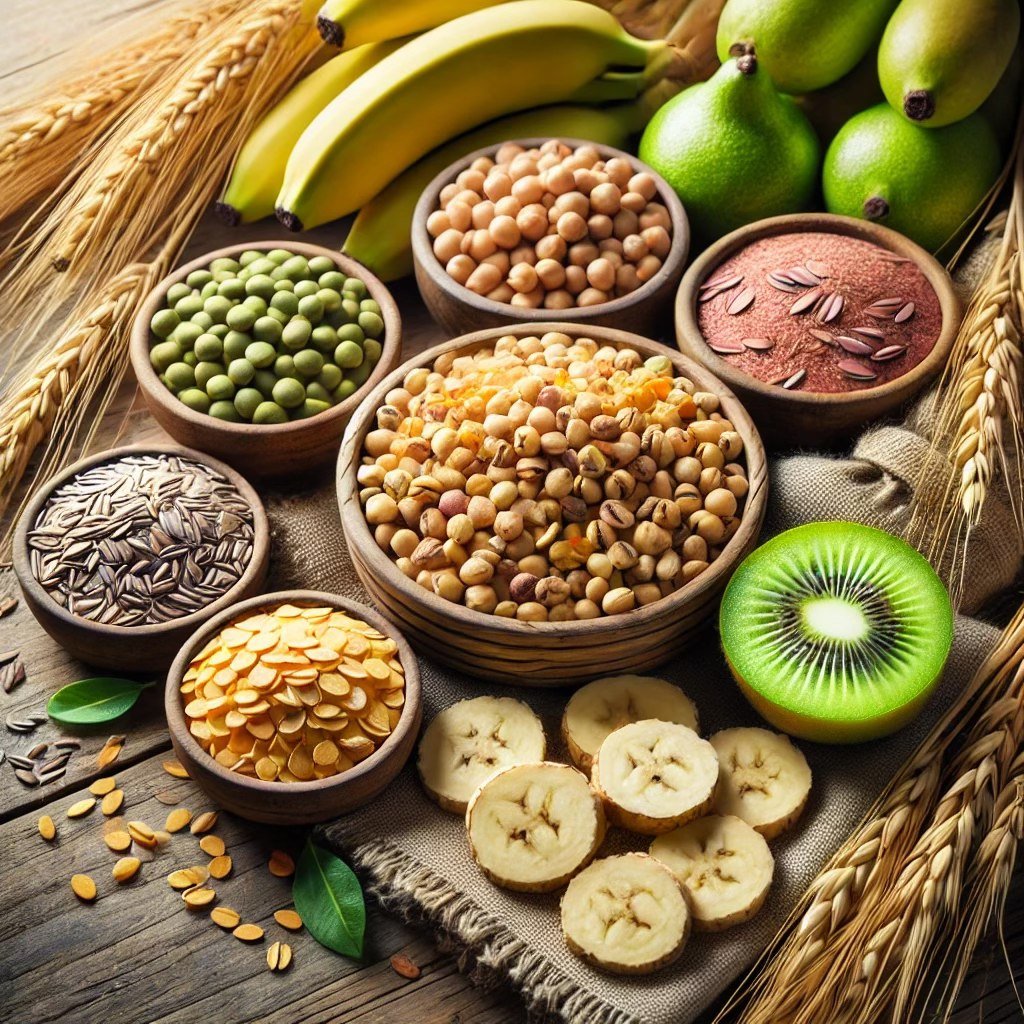The gut microbiome, a complex ecosystem of microorganisms residing in our gastrointestinal tract, has garnered significant attention in recent years for its profound impact on human health. This intricate community, comprised mainly of bacteria but also including viruses, fungi, and archaea, plays crucial roles in digestion, metabolism, immune function, and even influences our mental health. Understanding the dynamics and implications of the gut microbiome is pivotal as researchers uncover its connections to various diseases and overall well-being.
Understanding the Gut Microbiome
The human gut harbors trillions of microorganisms, collectively weighing around 2 kg in an average adult. This microbial community is highly diverse, with hundreds of species coexisting in a symbiotic relationship with the host. The composition of the gut microbiome can vary widely between individuals, influenced by genetics, diet, lifestyle, age, and environment.
1. Composition: Bacteria are the predominant members of the gut microbiome, with species from the Firmicutes, Bacteroidetes, Actinobacteria, and Proteobacteria phyla being most abundant. Each species has specialized functions, such as breaking down complex carbohydrates, producing essential vitamins (like B vitamins and vitamin K), and influencing the immune system.
2. Function: The gut microbiome plays a crucial role in digesting otherwise indigestible carbohydrates and fibers, producing short-chain fatty acids (SCFAs) that nourish the cells lining the colon and help regulate inflammation. Moreover, these microbes contribute to the synthesis of neurotransmitters like serotonin, impacting mood and cognition.
Impact on Health and Disease
Emerging research suggests that disruptions in the gut microbiome, known as dysbiosis, can lead to various health issues and may contribute to the pathogenesis of diseases, including:
1. Gastrointestinal Disorders: Conditions like inflammatory bowel diseases (IBD), irritable bowel syndrome (IBS), and colorectal cancer have been linked to alterations in gut microbiome composition and function.
2. Metabolic Disorders: Obesity and type 2 diabetes have been associated with specific microbial profiles, where changes in microbiome diversity and composition can affect energy extraction from food and influence metabolic pathways.
3. Immune System: The gut microbiome plays a pivotal role in training and modulating the immune system. Dysbiosis has been implicated in autoimmune diseases such as rheumatoid arthritis and multiple sclerosis, as well as allergic conditions like asthma.
4. Mental Health: There is growing evidence of the gut-brain axis, a bidirectional communication system between the gut and the central nervous system. Alterations in the gut microbiome have been linked to anxiety, depression, and neurodevelopmental disorders like autism.
Nurturing Your Gut Microbiome: Foods for Optimal Health
The gut microbiome, a diverse community of microorganisms residing in our digestive tract, plays a crucial role in maintaining overall health. This intricate ecosystem influences digestion, metabolism, immune function, and even mental health. To support a healthy gut microbiome, incorporating certain foods into your diet can promote microbial diversity and balance, enhancing overall well-being.
Foods Beneficial for the Gut Microbiome
- Fiber-Rich Foods: Fiber serves as fuel for beneficial gut bacteria, promoting their growth and diversity. Include plenty of:
- Whole grains: such as oats, barley, quinoa, and brown rice.
- Legumes: like beans, lentils, chickpeas, and peas.
- Fruits and vegetables: especially those with edible skins and seeds, such as apples, berries, oranges, broccoli, and artichokes.
- Fermented Foods: These contain beneficial probiotics—live bacteria that contribute to a healthy gut microbiome:
- Yogurt: Choose plain, unsweetened yogurt with live active cultures.
- Kefir: A fermented milk drink rich in probiotics.
- Sauerkraut: Fermented cabbage, providing probiotics and fiber.
- Kimchi: A Korean dish of fermented vegetables, often spicy and rich in probiotics.
- Miso: A traditional Japanese seasoning made from fermented soybeans.
- Prebiotic-Rich Foods: Prebiotics are types of fiber that feed beneficial bacteria already present in the gut, promoting their growth:
- Garlic: Contains prebiotics that support the growth of beneficial bacteria.
- Onions: Rich in prebiotic fibers like inulin.
- Asparagus: Contains inulin, a prebiotic fiber.
- Bananas: Particularly ripe bananas, which contain resistant starch that acts as a prebiotic.
- Omega-3 Fatty Acids: Found in fatty fish and certain plant sources, omega-3s help reduce inflammation and support a healthy gut environment:
- Salmon, mackerel, and sardines: Fatty fish rich in omega-3s.
- Flaxseeds and chia seeds: Plant-based sources of omega-3 fatty acids.
- Polyphenol-Rich Foods: Polyphenols are plant compounds with antioxidant properties that can benefit the gut microbiome:
- Berries: Blueberries, strawberries, and raspberries are rich in polyphenols.
- Dark chocolate: Contains flavonoids, a type of polyphenol.
- Green tea: Rich in catechins, a type of polyphenol with beneficial effects on gut health.
Incorporating These Foods into Your Diet
To maximize the benefits for your gut microbiome, aim for a diverse and balanced diet that includes a variety of the foods listed above. Incorporating fermented foods, fiber-rich foods, and sources of prebiotics can help nourish and support the diversity of your gut microbiota. Remember, consistency is key. Making these foods a regular part of your diet can have long-term benefits for your gut health and overall well-being.
By understanding the role of diet in nurturing the gut microbiome, you can take proactive steps towards supporting a healthy digestive system and promoting optimal health throughout your life.
References
- Cammarota, G., Ianiro, G., Tilg, H., Rajilić-Stojanović, M., Kump, P., Satokari, R., … & Sokol, H. (2017). European consensus conference on faecal microbiota transplantation in clinical practice. Gut, 66(4), 569-580. https://doi.org/10.1136/gutjnl-2016-313017
- Cryan, J. F., & Dinan, T. G. (2012). Mind-altering microorganisms: The impact of the gut microbiota on brain and behaviour. Nature Reviews Neuroscience, 13(10), 701-712. https://doi.org/10.1038/nrn3346
- Manichanh, C., Borruel, N., Casellas, F., & Guarner, F. (2012). The gut microbiota in IBD. Nature Reviews Gastroenterology & Hepatology, 9(10), 599-608. https://doi.org/10.1038/nrgastro.2012.152
- Turnbaugh, P. J., Ley, R. E., Mahowald, M. A., Magrini, V., Mardis, E. R., & Gordon, J. I. (2006). An obesity-associated gut microbiome with increased capacity for energy harvest. Nature, 444(7122), 1027-1031. https://doi.org/10.1038/nature05414
- Belkaid, Y., & Hand, T. W. (2014). Role of the microbiota in immunity and inflammation. Cell, 157(1), 121-141. https://doi.org/10.1016/j.cell.2014.03.011






